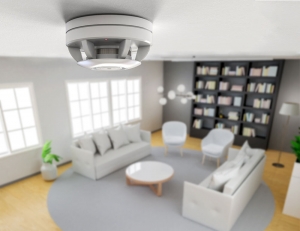Carbon Monoxide Awareness and Safety
For over 100 years, Wilsons has been helping Atlantic Canadian homes and businesses stay comfortable year-round. As your trusted local fuel provider and heating system installer, we value your family’s safety. We would like to share important information about carbon monoxide or CO, a silent invisible gas that can pose serious risks if not managed properly.
Carbon monoxide is a gas that has no colour, no smell and no taste. It’s often called a silent threat because it is invisible and undetectable unless with a CO detector. Carbon monoxide can be produced when fuels like propane, oil, wood, natural gas, and gasoline are burned incompletely. You can learn more here – Carbon monoxide: Overview – Canada.ca
Some common sources of CO in the Home
CO can be produced by:
- Furnaces and boilers
- Water heaters
- Wood stoves and fireplaces
- Gas Ranges and ovens
- Clothes dryers
- Portable generators
- Vehicles idling in attached garages.
Factors like poor ventilation or lack of maintenance can increase the risk of CO buildup.
How to protect your home
Install a carbon monoxide detector.
This is your first and most important line of defense. Alarms should be installed in hallways and outside of sleeping areas. These should be tested regularly, follow manufacturer instructions. Contact our friends at Wilsons Security for a consultation.
Keep up with maintenance.
Have your appliances checked and your heating system serviced by a qualified technician.
Keep vents and chimney clear.
Especially in the colder months, snow, ice or debris can block outdoor vents, or chimneys.
Carbon monoxide FAQ
Q: What should I do if my CO alarm goes off?
A: Leave your home immediately and call 911 or your local fire department. Don’t go back inside until it has been checked and declared safe.
Q: How often should I replace my CO alarm?
A: Most alarms last 5 to 10 years. Check the manufacturer’s instructions or look for an expiry date on the device.
Q: Are CO alarms and smoke alarms the same thing?
A: No, they detect different things. You need both in your home for complete protection.
Q: Is carbon monoxide only a risk in winter?
A: While winter is when we use our heating systems the most, CO can be a concern any time of the year if fuel-burning appliances are used.
Q: Do I need a CO alarm if I heat with oil or propane?Toggle Title
A: Yes, any fuel-burning system has the potential to produce carbon monoxide. A CO alarm is a simple and effective layer of safety.
For more detailed information visit Carbon monoxide: Overview – Canada.ca



